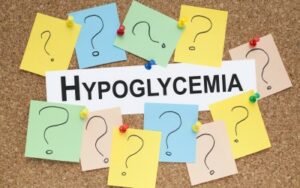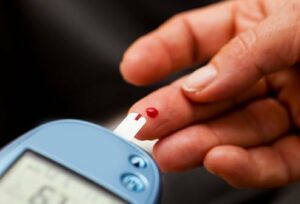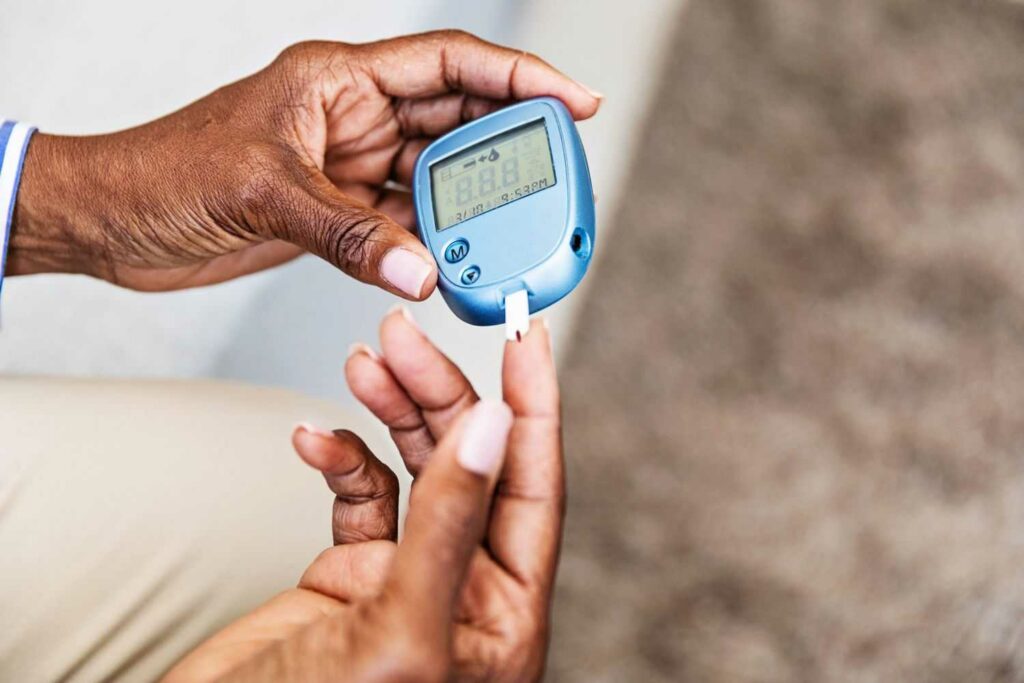Hypoglycemia can be challenging, even for individuals who do not have diabetes. Hypoglycemia, characterized by low blood sugar levels, can manifest in various symptoms such as dizziness, confusion, and fatigue. While diabetes is a common cause of hypoglycemia, it can also affect non-diabetics due to various reasons like certain medications, hormonal imbalances, or dietary habits. In this blog, we will explore the treatments for hypoglycemia in non-diabetics to manage and prevent its symptoms.
Contents
What Is The Immediate Treatments For Hypoglycemia In Non-Diabetics?
 The immediate treatments for hypoglycemia in non-diabetics involve quickly raising blood sugar levels to alleviate symptoms. Here are some steps to take:
The immediate treatments for hypoglycemia in non-diabetics involve quickly raising blood sugar levels to alleviate symptoms. Here are some steps to take:
Consume Fast-Acting Carbohydrates
In the event of hypoglycemia, the immediate goal is to raise blood sugar levels rapidly. Fast-acting carbohydrates are the key to achieving this. Options include glucose tablets, which are a concentrated source of glucose, or liquids such as fruit juice or regular soft drinks. Consuming around 15 grams of carbohydrates is a common recommendation. These simple sugars are quickly absorbed into the bloodstream, providing a swift increase in blood glucose levels.
Eat a Snack
While fast-acting carbohydrates provide a quick boost, it’s essential to follow up with a more sustained source of energy. Eating a small snack that includes protein and complex carbohydrates can help prevent another drop in blood sugar levels. Examples of suitable snacks include a piece of fruit, a few whole-grain crackers, or a small handful of nuts. This combination helps stabilize blood sugar levels and provides longer-lasting energy.
Avoid Overeating
It’s crucial to strike a balance between addressing low blood sugar promptly and avoiding overeating. Overconsumption can lead to a subsequent increase in insulin levels, potentially causing another drop in blood sugar. Moderation is key, and the goal is to restore blood glucose levels to a normal range without inducing a rapid spike that might be followed by a crash.
Monitor Symptoms
While implementing immediate treatment measures, it’s important to closely monitor symptoms. Improvement in symptoms, such as dizziness or confusion, is an indication that blood sugar levels are rising. However, if symptoms persist or worsen, or if there is any concern about the individual’s well-being, seeking medical attention is paramount.
Carry Emergency Snacks
Individuals who are prone to hypoglycemia should be proactive in managing their condition by carrying emergency snacks. Glucose tablets are convenient and portable, while a small packet of raisins or a granola bar can also serve as quick sources of carbohydrates. Being prepared with these snacks helps individuals address low blood sugar levels promptly. Especially when on the go or in situations where access to food may be limited.
Recheck Blood Sugar Levels
If a glucose meter is available, it is advisable to recheck blood sugar levels after consuming fast-acting carbohydrates. This step ensures that the intervention has effectively raised blood sugar levels to within a normal range. Regular monitoring provides valuable information for individuals managing hypoglycemia and helps them make informed decisions about further actions or adjustments in their treatment plan.
It’s important to note that these steps are general recommendations, and the specific response to hypoglycemia may vary from person to person. If an individual is experiencing recurrent or severe episodes of hypoglycemia, it is crucial to consult with a healthcare professional for a thorough evaluation and personalized guidance on management.
What Are Some Medical Treatments For Hypoglycemia In Non-Diabetics?
 Medical treatments for hypoglycemia in non-diabetics depend on the underlying cause of low blood sugar levels. It’s crucial to identify and address the specific factors contributing to hypoglycemia. Here are some medical interventions that healthcare professionals may consider:
Medical treatments for hypoglycemia in non-diabetics depend on the underlying cause of low blood sugar levels. It’s crucial to identify and address the specific factors contributing to hypoglycemia. Here are some medical interventions that healthcare professionals may consider:
Medication Adjustment
Some medications, especially those used for various health conditions, can contribute to hypoglycemia in non-diabetic individuals. In such cases, healthcare providers may consider adjusting the dosage of these medications or exploring alternative drugs with a lower risk of causing low blood sugar levels. Individuals need to communicate openly with their healthcare team about all medications they are taking to facilitate appropriate adjustments.
Hormone Replacement Therapy
Hormonal imbalances, such as deficiencies in cortisol or growth hormone, can be addressed through hormone replacement therapy. This involves supplementing the deficient hormones to restore balance in the body and prevent hypoglycemic episodes. The type and dosage of hormone replacement therapy will be determined based on the specific hormone deficiency identified through diagnostic tests.
Dietary Changes and Nutrition Counseling
Collaborating with a registered dietitian is a crucial aspect of managing hypoglycemia. A personalized nutrition plan may be developed, taking into consideration the individual’s dietary habits, lifestyle, and the specific triggers of hypoglycemic episodes. Dietary changes may include adjusting the timing and composition of meals to maintain more stable blood sugar levels throughout the day.
Continuous Glucose Monitoring (CGM)
For individuals experiencing recurrent or severe hypoglycemia, continuous glucose monitoring systems can provide valuable real-time data. These devices track blood sugar levels continuously, helping healthcare professionals identify patterns and make informed decisions about treatment adjustments. CGM can be especially beneficial in cases where standard blood glucose monitoring may not capture fluctuations adequately.
Glucagon Administration
In emergencies where an individual is unable to consume oral carbohydrates and is unconscious or unresponsive, healthcare providers may administer glucagon. Glucagon acts quickly to stimulate the release of glucose from the liver, raising blood sugar levels. Education on the proper use of glucagon and having it readily available in emergencies is essential for individuals prone to severe hypoglycemia.
Hospitalization and Intravenous (IV) Glucose
Severe cases of hypoglycemia may necessitate hospitalization, especially if the individual is unresponsive or experiencing repeated episodes. In the hospital setting, intravenous administration of glucose can rapidly raise blood sugar levels. This approach ensures a controlled and monitored environment for addressing acute hypoglycemic episodes and preventing complications.
Consultation with Specialists
Depending on the complexity of the case, healthcare professionals may refer individuals with persistent or complex hypoglycemia to specialists such as endocrinologists, hepatologists, or nephrologists. Collaborating with specialists allows for a more in-depth evaluation of the underlying causes and the development of a comprehensive treatment plan tailored to the individual’s unique health profile.
It’s important to emphasize that the appropriate medical treatment for hypoglycemia in non-diabetics will vary based on individual circumstances. Seeking timely and comprehensive medical evaluation is crucial to determine the underlying cause and develop an effective treatment plan tailored to the specific needs of the individual.


